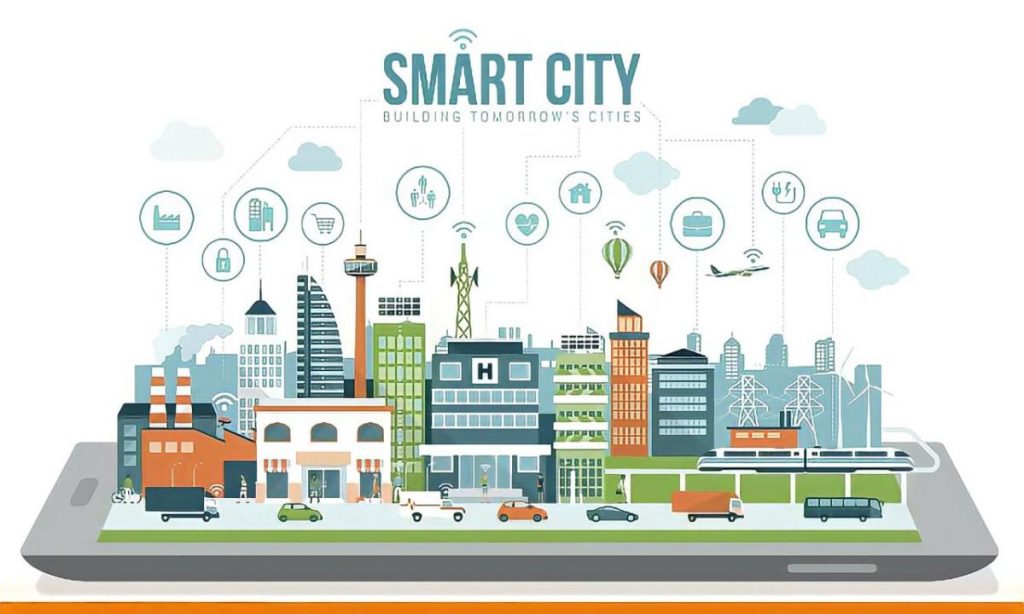Nowadays, many cities are starting to carry smart cities. Even UNESCO (United Nations Educational, Scientific and Cultural Organization) estimates that by 2030 Smart City can become a trend in various countries.
However, is the embodiment of making it that easy? Of course not! There are various challenges that must be faced in order to create such a name. Indeed, many countries or even cities have implemented it, but it is still not comprehensive.
Table of Contents
Getting to Know the Smart City Concept
This term must have various fundamental foundations, the infrastructure base is IT that meets and supports various needs and can adapt to technological advances, such as Internet of Things (IoT) sensors, assessment and analytics tools, and driven by artificial intelligence (AI) and lessons machine (Machine Learning).
This embodiment and the basic foundation have importance, and if one of them cannot be maximized, then the smart city will not run optimally and can even be said to be useless technology.
6 Pillars for Creating a Smart City
In the Second Session of the G20 Ministerial Meeting for Computerization from Jakarta, Thursday (05/08/2021), the Minister of Communication and Information, Johnny encouraged G20 member countries to create cities that can help people live more sustainably and productively.
The Minister of Communication and Informatics, Johnny, said that the 6 pillars that form the basis of how the smart city development program in Indonesia works are:
- Smart governance;
- smart branding;
- Smart economy;
- Smart society;
- Smart environment; and
- Smart living.
By covering these six aspects, cities that are prepared for smart cities are expected to become smart areas to help sustain community productivity.
Uses of Smart City
The main goal of a smart city is to optimize city functions and promote economic growth while improving the quality of life of citizens by using smart technology and data analysis. The value lies in how the technology is used rather than just how much technology is available.
City intelligence is determined using a set of characteristics, including:
- Technology-based infrastructure
- Environmental initiatives
- Effective and highly functional public transportation
- Confident and progressive city plan
- People who can live and work within the city, using its resources
Example of Smart City Application
Cities around the world are in various stages of developing and implementing smart technologies. However, there are some who are ahead of the curve, leading the way to creating a completely smart city. This includes:
- Barcelona, Spain
- Columbus, Ohio, USA
- Dubai, United Arab Emirates
- Hong Kong, China
- Kansas City, Missouri, USA
- London, England
- Melbourne, Australia
- New York City, New York, USA
- Reykjavik, Iceland
- San Diego, California, USA
- Singapore
- Tokyo, Japan
- Toronto Canada
- Vienna, Austria
For example, there is only traffic monitoring in Dubai. Dubai has smart telemedicine and healthcare solutions as well as smart buildings, utilities, education and tourism options.
Barcelona also has a smart transport system with bus stops offering free Wi-Fi and USB charging ports, along with bike sharing programs and smart parking apps including online payment options. Temperature, pollution and noise are also measured using sensors which also include humidity and precipitation.
The Challenge of Creating a Smart City
It’s not that easy to create a smart city. If it was that easy, then many cities and countries have implemented the program because it has various advantages. The following are the various challenges of creating a smart city that you need to know:
Basic Elements of Infrastructure Are Most Important
If you are to implement a smart city, you must enable seamless integration of sensors, applications and services to not only increase your return on investment over time, but also provide a solid foundation for key stakeholders for their journey of computing transformation.
Must Create a Flexible IT Infrastructure
The immeasurable infrastructure will be in vain because of the city’s growing capacity for implementation. While modular sections are indeed the necessary building blocks for Smart City, the amount of data used to power these modular sections should be increased as the amount of data generated increases.
Effective and Efficient Data Analysis Must Be Implemented In Cities
Smart Cities need to invest in infrastructure with intelligence that can scale as needed, handle data payloads, and support intelligent analytics tools to react quickly and responsibly.
Cities Must Protect Resident Data to Ease Privacy Concerns
A smart city must be able to protect resident data stored on various servers. Of course, this is important to alleviate privacy issues which must be a concern for many residents in order to protect the privacy of their data.
Political Differences Can Be A Barrier To The Implementation Of Smart Cities
Complex dynamics and political cycles are other ongoing challenges that could hinder this program. Large-scale skilled city projects are often challenging to fund, as they require the support of multiple stakeholders involved in public-private funding mechanisms that combine interests from national, state, and local levels with private companies.
Coordination Between Public and Private Sector Organizations Is Much Needed
Finally, there is coordination between public and private sector organizations. Collaboration and collaboration between key stakeholders in municipalities and the private sector can be another hurdle for Smart Cities. Government agencies and private sector organizations are often reluctant to share sensitive data or standardize the same network, tools and infrastructure.
So, it is necessary to build a computerized infrastructure that allows law enforcement to monitor data, decide on patterns, trends, and insights that can be acted upon.
![]()


